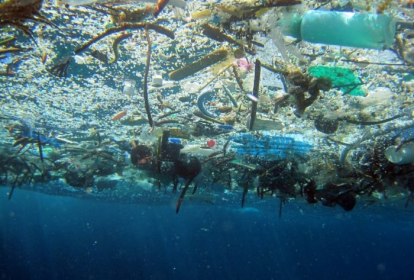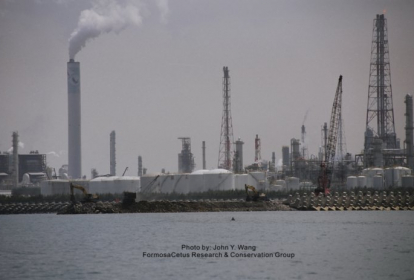The Environment and Whale Populations
The impact of the environment on cetaceans is an important issue for the IWC. 'Environmental Concerns' is a long-standing item on the Commission's agenda, and the focus of wide-ranging work by both the Scientific and Conservation Committees.
Any animal population requires a healthy environment to thrive. The cetacean environment is affected by a range of human activities: noise from busy shipping lanes, seismic surveys and sonar; chemical pollution and marine debris; the introduction of marine renewable energy technologies such as windfarms, and climate change. Each of these individually, or in combination with others, can impact on the cetacean environment.
The Scientific Committee's working group on environmental concerns aims to evaluate these potential threats and, where possible, devise suitable mitigation measures. The Conservation Committee works with the Scientific Committee, and with other organisations and policy makers to help deliver the agreed mitigation measures at international, regional and local level.
IWC oversight of environmental concerns around the world is maintained through biennial reports from member governments on national and regional efforts to monitor and address the impacts of environmental change on cetaceans and other marine mammals. In addition, the Scientific Committee regularly complies a State of the Cetacean Environment Report which provides a non-technical summary of events and the condition of the marine environment relevant to cetaceans in different regions.
Habitat Degradation
A working definition of habitat degradation is ‘processes of human origin that make habitats less suitable or less available to cetaceans’. This is in some ways an attempt to collectively examine the many actual and potential human-induced stressors that a cetacean population may face. These can affect individuals and potentially whole populations. The challenge is to evaluate these potential stressors both singly and collectively and to determine what comprises ‘healthy habitats’.
The range of lifestyles of cetacean species also make the issue complex; for example some migrate extremely long distances between feeding grounds in high latitudes and breeding grounds in lower latitudes, while others remain in relatively restricted areas. In 2004 the Scientific Committee held a workshop to develop a framework for addressing habitat degradation. This provided guidance on future work, including the concept of 'critical habitat,' focusing on areas that appear to be most influential on the health of populations.
- To read the report of the workshop on habitat degradation click here.
- To read about climate change click here.
- To read about anthropogenic sound click here.
- To read about marine debris click here.
- To read about chemical pollution click here.
- To read about marine renewable energy developments click here.



